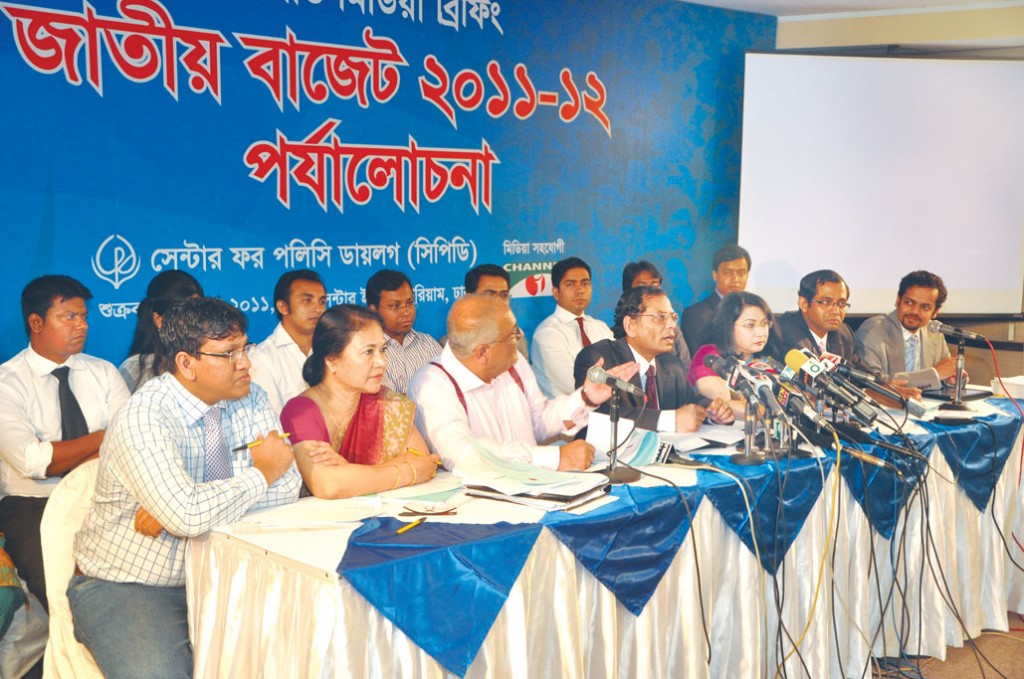Government’s high growth target (7 per cent) will be challenging with lower export and import targets, falling remittance inflow and foreign exchange reserves, and lower broad money target, said CPD at its budget press briefing. Following its tradition, CPD organised this press briefing at the BRAC Centre Inn Auditorium, on 10 June 2011, immediately the day after the National Budget FY2011-12 was announced by the Finance Minister. Professor Mustafizur Rahman, Executive Director, CPD briefed the press about CPD’s initial comments on the proposed budget. The briefing was telecast live on Channel i, and was covered extensively by both print and electronic media.
Professor Rahman expressed his concern that the growth target of foreign exchange reserves for FY2011-12 (11.6 per cent) may not be achievable owing to the lower flow of remittances and high growth of import. Regarding tax measures, he noted that increase of tax deduction at sources from 0.4/0.5 per cent to 1.5 per cent would be a burden for the exporters. Commenting on sectoral resource allocation, he stated that though the budget has allocated Tk. 45 billion for agriculture subsidy, it will ultimately go up due to upward price of the fertiliser in the international market. He praised the proposed increase of supplementary duty from 20 per cent to 45 per cent on the import fabrics, noting that the measure will help boost the local textile industry. Professor Rahman continued that the budget allocation for the development of the energy sector may not be enough to achieve power generation targets. He also criticised the government for reducing the number of beneficiaries (5 per cent less than the previous year) under the social safety net programmes. He mentioned that CPD strongly opposed government’s offer for whitening undisclosed income.
Professor Rahman apprehended that while the flow of foreign aid has been low during the past few years, a number of large foreign-aid projects, including the Padma Bridge, have been earmarked for implementation in the upcoming fiscal year. He proposed that efforts to release foreign aid in the pipeline needs to be intensified and government should seek alternative sources of foreign aid in the form of grant, and budgetary support to reduce pressure on domestic credit market. Adjustment of interest rate and management of exchange rate are also necessary, he added.
Dr Debapriya Bhattacharya, Distinguished Fellow, CPD remarked that the government’s higher borrowing target from the local sources, and high bank rate can squeeze the credit flow to the private sector. If this happens, it will adversely impact on the growth performance of the economy, he added. He observed that withdrawal of tax exemption for parliamentarians and government officials is a bold and long-awaited measure towards establishment of equity between public and private sector employees.
It is important to invest in development of human resource and capacity building, and also raise the efficacy of all ministries and institutions related to ADP and budgetary implementation, suggested CPD.


